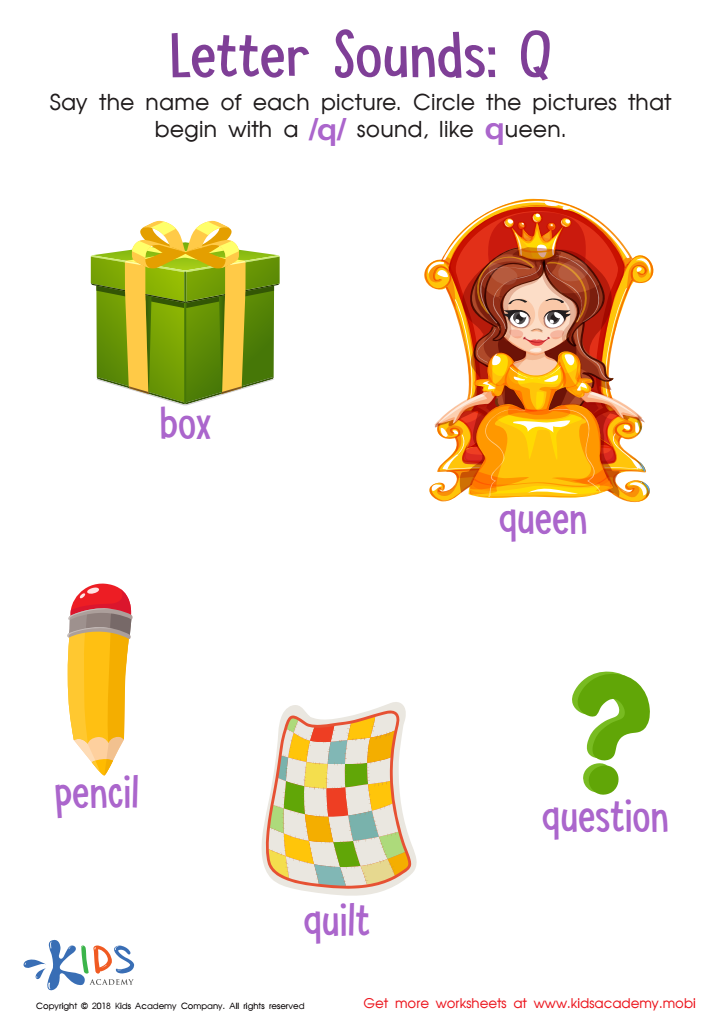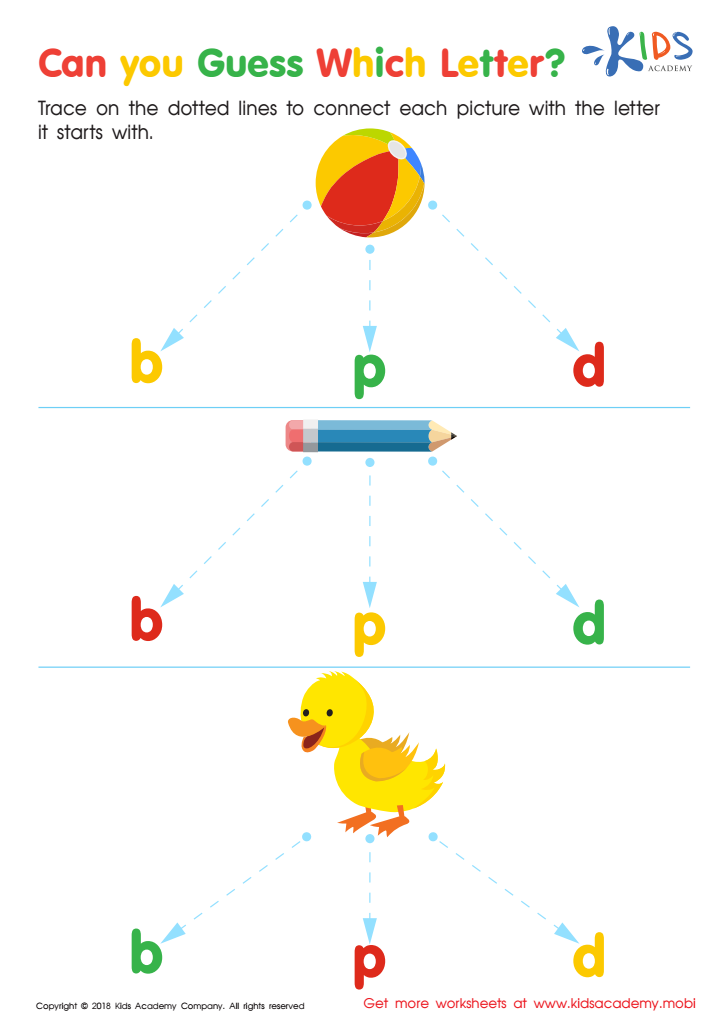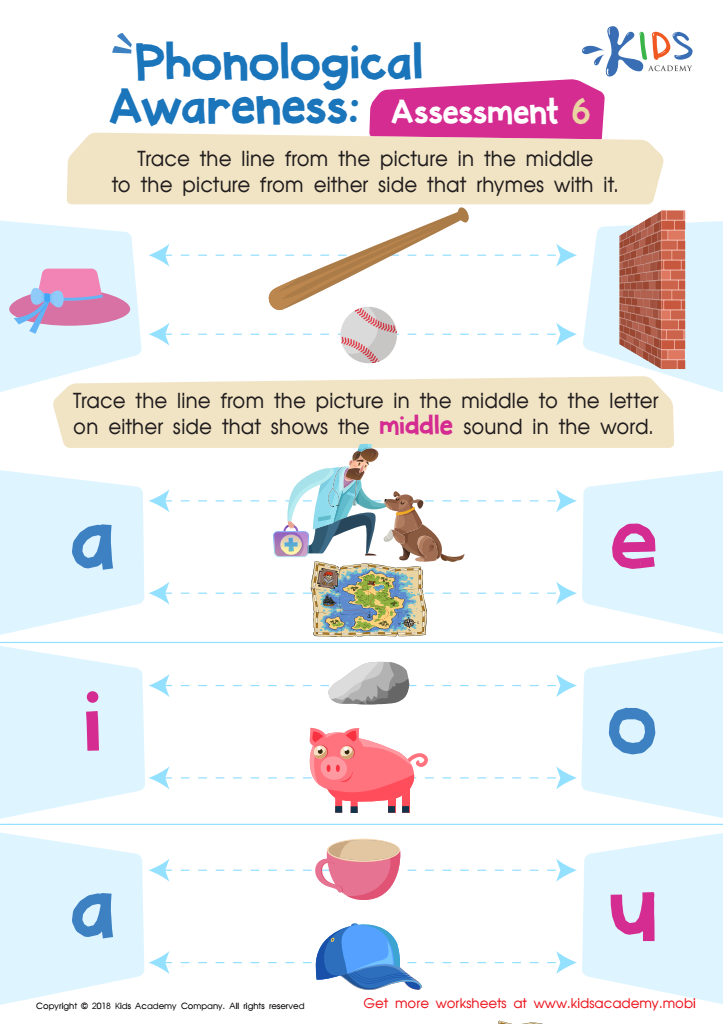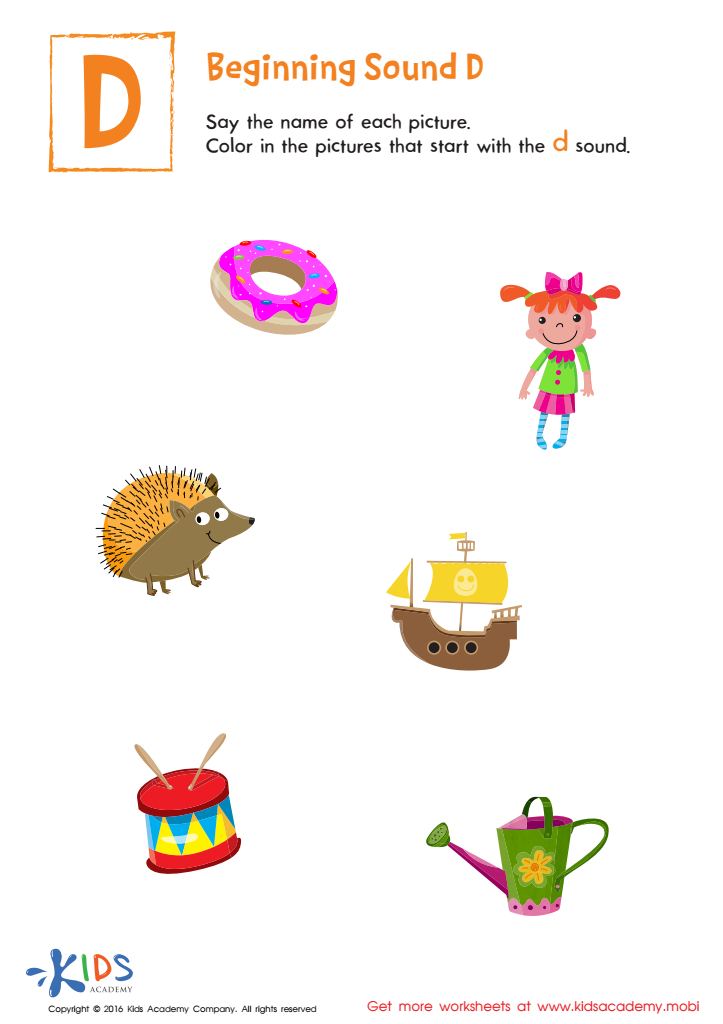Reading readiness Phonics Worksheets for 5-Year-Olds
5 filtered results
-
From - To
Welcome to our “Reading Readiness Phonics Worksheets for 5-Year-Olds” page! Designed to foster literacy skills in young learners, our engaging worksheets focus on phonics and alphabet recognition, laying a solid foundation for reading. These expertly crafted activities help children identify letters, sounds, and simple words, making learning fun and interactive. With vibrant visuals and playful themes, our resources foster creativity while enhancing essential skills. Perfect for home or classroom use, these worksheets support busy teachers and parents. Explore our comprehensive selection to ignite a love for reading in your child and prepare them for future academic success!


Letter Q Sounds Worksheet


Can you Guess Which Letter? Worksheet


Phonological Awareness: Assessment 6 Worksheet


Phonological Awareness: Assessment 1 Worksheet


Beginning Sound D Worksheet
Reading readiness, particularly phonics, is crucial for 5-year-olds as it lays the foundation for literacy development. At this age, children begin to make connections between sounds and letters, which is essential for reading proficiency. Engaging with phonics helps young learners understand that words are made up of sounds that can be blended together. This knowledge is vital for decoding words and enhances children's ability to read fluently and with comprehension later on.
Parents and teachers play a significant role in fostering reading readiness. By concentrating on phonics, they can support children's awareness of letter-sound relationships, which boosts confidence and encourages a love for reading. Early exposure to phonics can prevent reading difficulties down the line, making it an investment in a child's academic success.
Moreover, when children develop solid reading skills early, they are more likely to perform better in school overall, opening doors to further learning opportunities. Additionally, reading readiness can enhance communication skills and creativity, enabling children to express themselves more effectively. In short, prioritizing phonics in early education ensures that children are equipped for a successful literacy journey, shaping their future educational and personal achievements.
 Assign to My Students
Assign to My Students



















